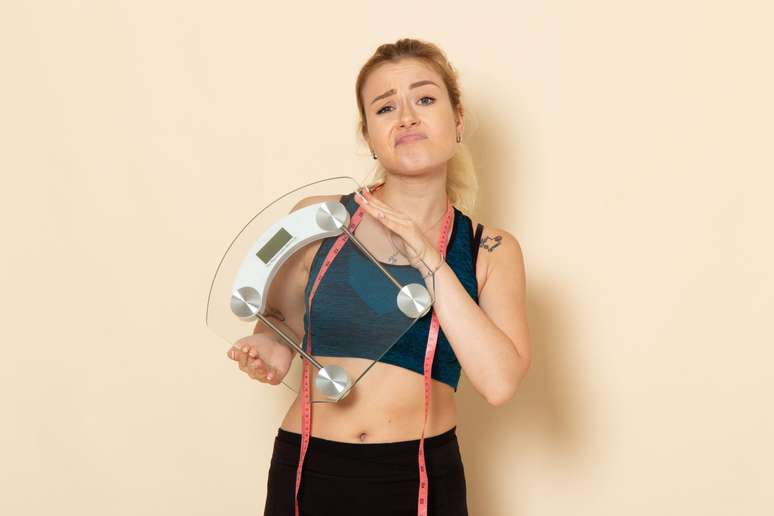There’s no escaping menopause and its physical and emotional effects, but some measures can ease symptoms.
Inevitably, menopause brings its own set of emotional and physical challenges for women entering climacteric. This is because hormonal changes promote significant changes throughout the body, which directly impact well-being and quality of life.
html[data-range=”xlarge”] figure image img.img-0555fc961f32c1455e2cac26024a3630vdf5o7p9 { width: 774px; height: 463px; }HTML[data-range=”large”] figure image img.img-0555fc961f32c1455e2cac26024a3630vdf5o7p9 { width: 548px; height: 328px; }HTML[data-range=”small”] figure figure img.img-0555fc961f32c1455e2cac26024a3630vdf5o7p9, html[data-range=”medium”] figure image img.img-0555fc961f32c1455e2cac26024a3630vdf5o7p9 { width: 564px; height: 337px; }
Menopause is a natural stage in a woman’s life in which there is a decrease in the production of hormones, especially estrogen, explains Dr. Patricia Santiago. This hormonal change can directly affect the brain, resulting in symptoms such as mood swings, irritability, anxiety, difficulty concentrating, and even memory problems.
Furthermore, the body also undergoes transformations during the period. “The metabolism can slow down, increasing the susceptibility to weight gain and changes in the distribution of body fat. In addition, hot flashes, night sweats, vaginal dryness and skin changes are also common during this period,” adds the professional.
6 tips to better deal with menopause
Patricia shares some tips for dealing with menopause symptoms:
1. Information is power: Knowing and understanding what’s going on in your body and mind during menopause is essential to better coping with the challenges. Therefore, look for reliable information and talk to your doctor to clarify your doubts.
2. Food Care: A balanced and nutritious diet is essential during menopause. Dr. Patrícia recommends eating foods rich in calcium, vitamin D, vitamins and minerals to strengthen bones, regulate mood and fight oxidative stress.
3. Exercise Regularly: Regular physical activity brings numerous benefits to the mind and body. That’s because, in addition to helping maintain a healthy weight, exercise releases endorphins, improves mood, boosts disposition, and promotes cardiovascular health.
4. Manage Your Stress: During menopause, stress can intensify. Find relaxation techniques that work for you, such as meditation, yoga, deep breathing, or hobbies that bring pleasure and peace of mind.
5. Seek Emotional Support: Don’t hesitate to seek support from family, friends, and healthcare professionals. Menopause can be emotionally demanding, and sharing your experiences can bring comfort and understanding.
6. Treatment Options: It is important to have a medical evaluation because in some cases it is necessary to replace hormone therapies or other treatments to relieve the symptoms of menopause. Consult a trusted professional to weigh your options and find the best approach for you.
Menopause can be a phase of transformation and self-discovery. With the advice of Dr. Patrícia Santiago, you will be better prepared to face the challenges and fully experience this new phase of life. She reminds that every woman is unique and self-care is essential to ensure a smoother, healthier menopause.
Source: Terra
Ben Stock is a lifestyle journalist and author at Gossipify. He writes about topics such as health, wellness, travel, food and home decor. He provides practical advice and inspiration to improve well-being, keeps readers up to date with latest lifestyle news and trends, known for his engaging writing style, in-depth analysis and unique perspectives.






-t84500vauzw7.png)


